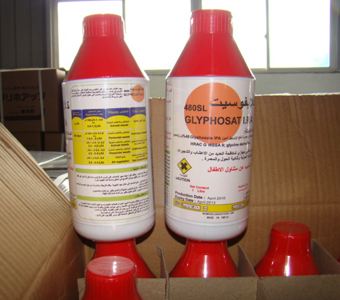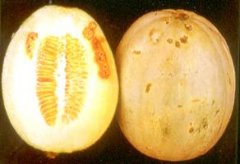Roundup glyphosate herbicide charged with causing cancer US court awarded Monsanto $2 billion
On May 13, a court in San Francisco ordered German chemical and pharmaceutical giant Bayer to pay a couple $2.05 billion in compensation for using Monsanto's Roundup herbicide. Glyphosate (glyphosate) was diagnosed with cancer. This is the third time the company has been held responsible for cancer patients, and this time the amount of compensation awarded has reached an all-time high.
This is the third successful precedent in the United States. in August 2018, a jury in a state court in San Francisco awarded Monsanto $289 million in damages to a California gardener who was found to have cancer due to his frequent use of "every spring" to weed. The amount of compensation was later reduced to $78 million and is currently at the appeal stage. In March 2019, a federal jury in San Francisco found that "every spring" caused another California man to suffer from cancer and awarded Monsanto $80 million. Monsanto also said at that time that it would appeal, both of which came from the verdict of the California jury. It is believed that a large number of similar cases will follow. Bayer will face a large amount of reparations, and the best outcome for Bayer is to reach a settlement with the federal government as soon as possible to avoid similar class action lawsuits.

The main ingredient of Roundup glyphosate herbicide is the controversial chemical Jiaposai, which is widely used in agricultural cultivation in various countries, and was successfully developed and widely used by Monsanto in the 1970s. subsequently, Monsanto launched genetically modified seeds to enable farmers to grow crops while killing weeds, which is why reversal and anti-glyphosate abuse are tied together. Prior to the three cases, Monsanto had denied that glyphosate herbicides could cause cancer, but in various countries, glyphosate began to face official boycotts, and in August 2018, the Brazilian government listed glyphosate as dangerous goods. although the move was criticized by local agricultural associations, China was not among them. Bayer said in a statement after the verdict that it was disappointed with the jury's verdict and would appeal. Bayer claimed that the results were at odds with a recent review by the US Environmental Protection Agency (EPA) of the presence of the herbicide, saying it was unlikely to cause cancer in humans.
The Bayer statement also said: "there is a consensus among major health regulators around the world that the products of the ingredient are safe to use and that they do not cause cancer."
Bayer points out that the plaintiff's medical history already has risk factors for non-Hodgkin's lymphoma, a cancer that affects white blood cells. Bayer bought Monsanto for $63 billion in 2018, merging the two into the world's largest agrochemical giant. Bayer announced in April 2019 that it is currently facing more than 13000 lawsuits related to this in the United States, while there has been no effective response to the results in other markets around the world.
- Prev

Common bryophytes Wannian moss, how do Wannian moss reproduce? can Wannian moss get into the water? is it good to raise?
Wannian moss is a kind of medicinal moss, its main efficacy is relaxing muscles and activating collaterals, as well as clearing away heat and dehumidification. it is widely distributed in many regions of our country, such as Jiangsu, Anhui, Zhejiang and other places. Wannian moss mainly grows in tide.
- Next

What harm does bacterial fruit spot of cantaloupe and watermelon have? Control of bacterial Fruit spot in Watermelon
From 1992 to 1993, in the coastal area of Yunlin County and Shanhua area of Tainan County, it was sporadically found that the fruit surface of large watermelon showed irregular water immersion, slightly cracked disease spot, mainly occurred in the rainy season, the disease spot spread on the pericarp, and did not harm the pulp at the initial stage. May 1997 is suitable for Taiwan.
Related
- Fuxing push coffee new agricultural production and marketing class: lack of small-scale processing plants
- Jujube rice field leisure farm deep ploughing Yilan for five years to create a space for organic food and play
- Nongyu Farm-A trial of organic papaya for brave women with advanced technology
- Four points for attention in the prevention and control of diseases and insect pests of edible fungi
- How to add nutrient solution to Edible Fungi
- Is there any good way to control edible fungus mites?
- Open Inoculation Technology of Edible Fungi
- Is there any clever way to use fertilizer for edible fungus in winter?
- What agents are used to kill the pathogens of edible fungi in the mushroom shed?
- Rapid drying of Edible Fungi

